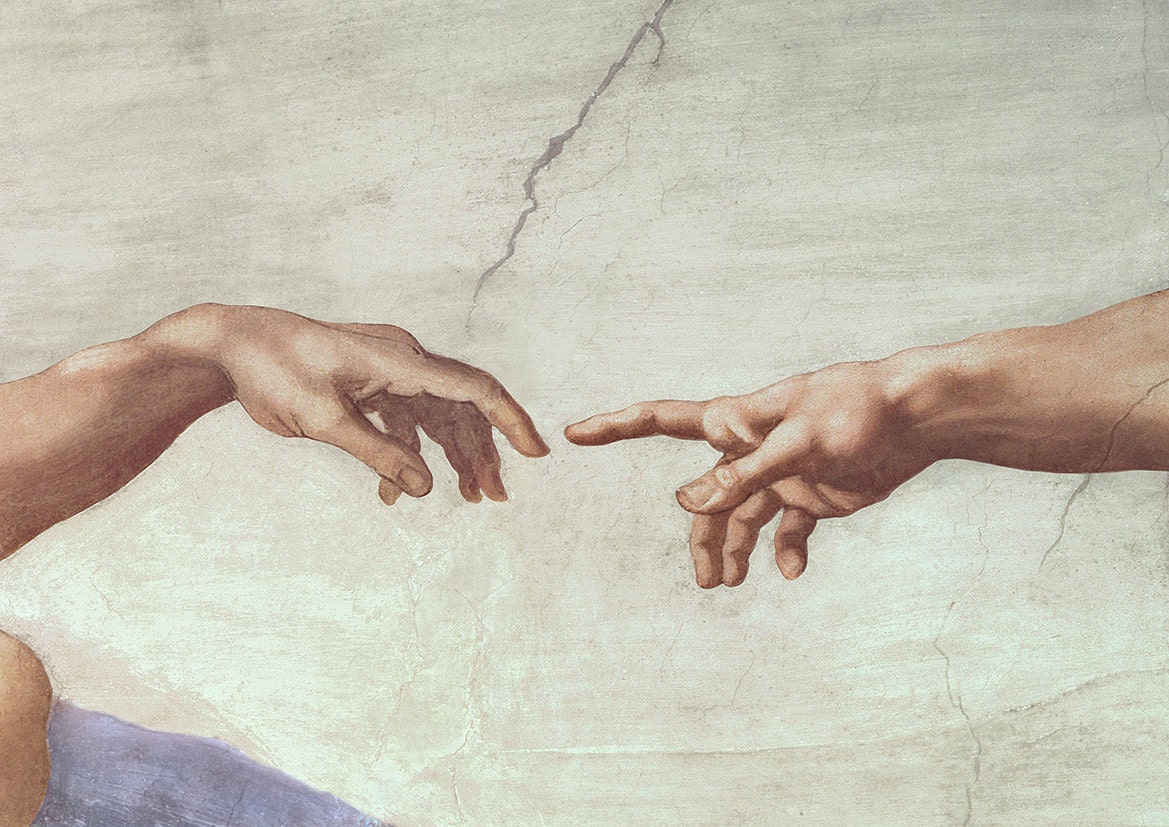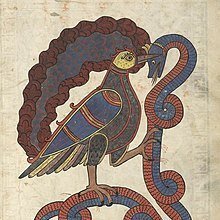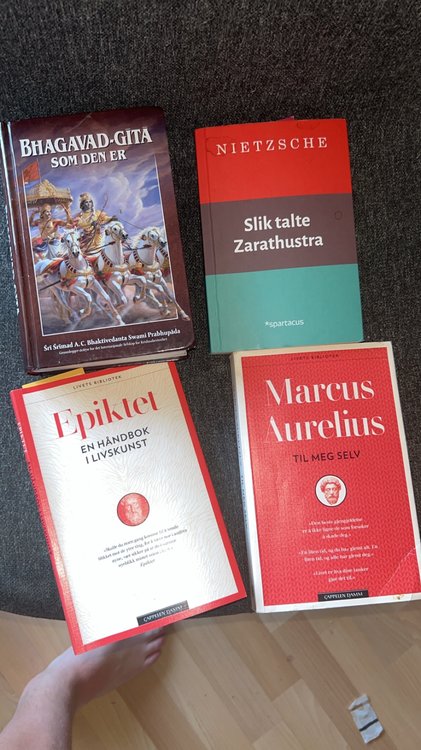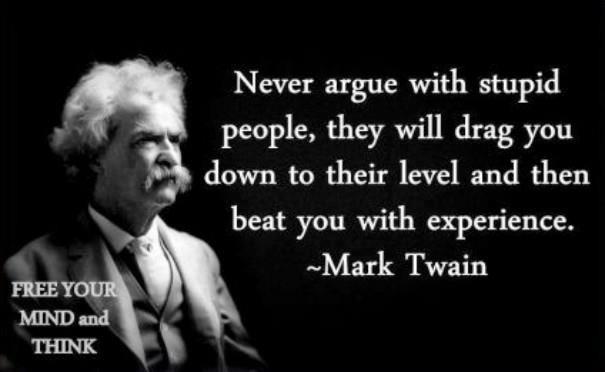-
Content count
1,394 -
Joined
-
Last visited
-
Days Won
7
Posts posted by Sir Darius the Clairvoyent
-
-
4 minutes ago, Cadcam said:Yes! Where is it
Here you go, good sir: https://www.thedaobums.com/topic/56160-lifes-essence-eight-principles/
-
13 hours ago, DBT said:Does our past still have a hold on us, events and experiences from long ago, do they still hold sway in our lives. Can we/should try to avoid them or cancel them out.
This is just me thinking aloud.
Maybe I am misunderstandint the question. If so, apologies. If not, I would say most definetly yes. Who can say that a break up for instance, did not effect their personality and world view for a good time afterwords?
-
 2
2
-
-
-
Life's Essence: eight Principles
"Every acquisition, every step forward in knowledge is the result of courage, of severity toward oneself, of cleanliness with respect to oneself."
Friedrich Nietzsche, Ecce Homo
Background
I'll be honest: I have dug myself into a deep hole. Life can be pure bliss, but at times it can be a real struggle, perhaps even hell. As it says in the Gospel of Matthew, the gate to damnation is "wide and broad," while the way that leads to life is "narrow, and few find it."
Given my current life situation, I have decided to create a short and concise list of the most important principles for a good life. I have pre-determined that I will limit myself to 10 principles, without knowing exactly what they will entail. This is because I want them to be impactful and to the point. Naturally, this is a personal list — my rules for my life, and by no means intended to be universal. However, I am very open to feedback, comments, and your own principles on the path to paradise.
Jordan Peterson's 12 Rules for Life: An Antidote to Chaos
The project is clearly inspired by the aforementioned book. I know he is a controversial character, but I don't give a f***. I like him. He argues that life is characterized by order and chaos. It can perhaps be compared to yin and yang; I wouldn't know, as my knowledge of Eastern philosophy is practically nonexistent (unfortunately).
Peterson points out that too much order and too much chaos can both be harmful. Too much order can lead to rigidity, stagnation, and even totalitarian tendencies, while too much chaos can result in fear, anxiety, and the disintegration of meaningful structures. Humans need a dynamic balance between these forces to live a rich and meaningful life. Rules, routines, and structures can help us find this balance, without losing the ability to adapt and grow in the face of unpredictability. Here, I will create my own "rules for life."
"The scientific world of matter can be reduced, in some sense, to its fundamental constituent elements: molecules, atoms, even quarks. However, the world of experience has primal constituents, as well. These are the necessary elements whose interactions define drama and fiction. One of these is chaos. Another is order. The third (as there are three) is the process that mediates between the two, which appears identical to what modern people call consciousness. It is our eternal subjugation to the first two that makes us doubt the validity of existence — that makes us throw up our hands in despair and fail to care for ourselves properly. It is a proper understanding of the third that allows us the only real way out."
― Jordan Peterson
Norse Mythology - Order, Chaos, and Creation
In the Norse creation myth, Ymir is the first being, a primordial entity that holds the potential for the entire world within itself. Ymir exists in a chaotic primal state, where all opposites — light and darkness, order and chaos, male and female — exist simultaneously and indivisibly. Through his asexual creation, the giants emerge, making Ymir a symbol of a state of unity where all contrasts are merged.
The dualities of the world come into being through the sacrifice of Ymir; his body is divided by the gods to create earth, sea, trees, and mountains. This act of violence marks the transition from unity to diversity, showing how order often arises from chaos. Ymir must die for the world to exist, and his sacrifice makes it possible for opposites such as night and day, land and sea, gods and humans to take form.
This illustrates how order and chaos function as complementary forces in creation. Ymir represents chaotic potential that must be shaped, while the gods create order. Creation becomes a process where both forces are necessary; they are not merely opposites but also prerequisites for each other. The world emerges in a tension between these forces, and it is in their interplay that the cosmos finds its form and beauty.
This is the backdrop for my ten principles: an understanding of life as a dance between order and chaos, between light and darkness, and how we can find our way through this landscape by embracing both structure and spontaneity.
The eight principles
1. Read Great Thinkers
This will make more sense as the majority of the "rules" contain quotes from great thinkers. People have pondered over life's great mysteries since practically forever. One of my favorite artworks illustrates this in a spectacular and beautiful way:
Lions, Chauvet Cave, France
The cave painting is 35,000 years old. No one can convince me that these people did not have as rich an inner life as us. Once in a blue moon, people so profound appear that reading them will enrich your life immeasurably. The older, the better. If it has stood the test of time, there is undoubtedly a reason for it.
2. … but you are the final authority
By all means, listen to the wise. Listen to everyone, in fact, because I believe everyone has something to contribute if you give them the chance. However, beware of the conman.
"Go alone, my disciples, You too, go now alone. Thus I want it. Go away from me and resist Zarathustra! And even better: be ashamed of him! Perhaps he deceived you… One pays a teacher badly if one always remains nothing but a pupil. And why do you not want to pluck at my wreath? You revere me; but what if your reverence tumbles one day? Beware lest a statue slay you. You say that you believe in Zarathustra? But what matters Zarathustra? You are my believers – but what matter all believers? You had not yet sought yourselves; and you found me. Thus do all believers; therefore all faith amounts to so little. Now I bid you to lose me and find yourselves; and only then when you have all denied me will I return to you… that I may celebrate the great noon with you."
― Nietzsche
3. Logos - Universal Reason
According to Herodotus, "Persians educate their boys to ride well, shoot straight, and speak the truth." The Persian word for truth would be asha or arta. This is part of a shared Indo-European notion of cosmic order. The wiki page on Proto-Indo-European mythology says the following:
"Linguistic evidence has led scholars to reconstruct the concept of *h₂értus, denoting 'what is fitting, rightly ordered', and ultimately deriving from the verbal root *h₂er-, 'to fit'. Descendant cognates include Hittite āra ('right, proper'); Sanskrit ṛta ('divine/cosmic law, force of truth, or order'); Avestan arəta- ('order'); Greek artús ('arrangement'), possibly arete ('excellence') via the root *h₂erh₁ ('please, satisfy'); Latin artus ('joint'); Tocharian A ārtt- ('to praise, be pleased with'); Armenian ard ('ornament, shape'); Middle High German art ('innate feature, nature, fashion')."
This is also where the Hindu concept of karma and dharma stems from. In classical Greek philosophy, particularly in the works of Heraclitus, logos refers to the rational structure that permeates the cosmos. Heraclitus saw logos as the universal law or principle that governs change and order in the universe. He believed that even though the world is in constant flux, everything happens according to an underlying rational order — logos.
This is why my username is NaturaNaturans (nature natures).
4. Eudaimonia (term coined by Aristotle, often translated to human flourishing) - nurture your environment
"Think of a flower. If you water it, give it enough light, maybe feed it a little, then it will grow and bloom… Human beings can flourish like plants too."
― Nigel Warburton
5. Kill the Dragon - One Foot in the Known, One in the Unknown
Science tells us that this is the key to a fulfilling life: finding the balance between order and chaos. Too much order, and life becomes meaningless. Too much chaos, and you become lost and confused, at best.
In the Norse universe, the first humans, Ask and Embla, were made of wood. Just as God breathed life into dust, Odin and his brothers breathed life into them. Odin, Vili, and Ve, Woðanaz, Weljon, and Wixan, their names meaning shamanic fury, the will, and the sacred respectively. They gave their creations, humanity, Midgard, a beautiful and magnificent place between the gods' fortress and the great unknown: Utgard, where they would dwell until Ragnarok.
To explain this further, I must elaborate on the concept of "gard." Gard means enclosure: a fenced-in and protected place. We have Asgard, the fortress of the Aesir (the divine), Midgard, home of the tribe and the known and protected from Utgard (outside the fence), where giants, enemies of the gods, dwell. Utgard is frightening and exciting. Sometimes necessary to explore, but with great risk, and the potential for everlasting fame.
Here's something to note. Firstly, they divide the world into three mental categories: the high and divine, the known and safe, and the wild and unknown. The high, the mundane, the low. Heaven, Earth, Hell. In Voluspa, Odin learns of the fate of the gods and their creations:
"The sun turns black, earth sinks in the sea,
The hot stars down from heaven are whirled;
Fierce grows the steam and the life-feeding flame,
Till fire leaps high about heaven itself."
Despite this, the knowledge of one's own and others' demise, Odin travels through the different realms in search of wisdom, to prepare for the inevitable end and to challenge fate itself. He takes the bravest warriors with him to Valhalla, where they prepare for the final battle.
In the vedic epic of Bhagavad Gita, two rivaling royal families stood ready to battle in the northern plains of India. Arjuna, the rightful heir to the throne, was prepared to fight for his right. But as he looked at his relatives, teachers, and friends on the opposing side, he was overwhelmed by deep sorrow. How could he kill his own kin? It was at this moment that the Supreme Personality of God, Krishna, revealed Himself to Arjuna. In the text, Krishna is described as the source of all existence. Arjuna humbly asked for guidance: "Now I am your disciple, and my soul is surrendered to you. Please instruct me."
Krishna/the Supreme Personality of Godhead said: "My dear Arjuna, how have these impurities come upon you? They are not at all befitting a man who knows the value of life. They lead not to higher planets but to infamy. (...) Give up this petty weakness of heart and arise."
Trito, from proto indo european mythology, is the archetypical warrior/hero. He would chase down an foreign enemy to retrieve the cattle they had stolen. To do this, he had to face a serpent, three headed monster or something similar. By retrieving the cattle, he was welcomed back as a hero. This is where we get the so called serpent slaying myth, which lives on to this very day. You even find it in Shrek haha.
Point is, the greatest treasures is to be found in a dark cave, guarded by a fire-spitting, flying reptile - the ultimate predator. Only by facing him bravely, can you achieve the highest good.
6. Memento mori
All the following quotes are from Marcus Aurelius:
"Your days are numbered. Use them to throw open the windows of your soul to the sun. If you do not, the sun will soon set, and you with it."
"Your days are numbered. Use them to throw open the windows of your soul to the sun. If you do not, the sun will soon set, and you with it."
"It is not death that a man should fear, but he should fear never beginning to live."
"If souls survive death for all eternity, how can the heavens hold them all? Or for that matter, how can the earth hold all the bodies that have been buried in it? The answers are the same. Just as on earth, with the passage of time, decaying and transmogrified corpses make way for the newly dead, so souls released into the heavens, after a season of flight, begin to break up, burn, and be absorbed back into the womb of reason, leaving room for souls just beginning to fly. This is the answer for those who believe that souls survive death."
7. Appreciate beauty
"Dwell on the beauty of life. Watch the stars, and see yourself running with them."
Aurelius, meditations
8. Become whole
https://www.youtube.com/watch?v=15pjQRA80bs
And at last:
"Waste no more time arguing about what a good man should be. Be one."
Aurelius -
29 minutes ago, Cadcam said:We need a central thesis, one that catches the mind, and that can be used to craft other observations.
Something like " man was meant to create beauty"
«create art»
-
-
Thanks all. Apologize for not answering, I am not that active here, but appreciate it.
-
Read great books. Listen to the wise, but disregard what you dont understand/agree with. Trust yourself. Make things beautifull, create something beautifull. Create a beautifull enviorment to grow into who you supposed to be
None of these are really «original,» but at least I havent plagerized something.
-
ECKHART: The “dark night of the soul” is a term that goes back a long time. Yes, I have also experienced it. It is a term used to describe what one could call a collapse of a perceived meaning in life…an eruption into your life of a deep sense of meaninglessness. The inner state in some cases is very close to what is conventionally called depression. Nothing makes sense anymore, there’s no purpose to anything. Sometimes it’s triggered by some external event, some disaster perhaps, on an external level. The death of someone close to you could trigger it, especially premature death, for example if your child dies. Or you had built up your life, and given it meaning – and the meaning that you had given your life, your activities, your achievements, where you are going, what is considered important, and the meaning that you had given your life for some reason collapses.
It can happen if something happens that you can’t explain away anymore, some disaster which seems to invalidate the meaning that your life had before. Really what has collapsed then is the whole conceptual framework for your life, the meaning that your mind had given it. So that results in a dark place. But people have gone into that, and then there is the possibility that you emerge out of that into a transformed state of consciousness. Life has meaning again, but it’s no longer a conceptual meaning that you can necessarily explain. Quite often it’s from there that people awaken out of their conceptual sense of reality, which has collapsed.
They awaken into something deeper, which is no longer based on concepts in your mind. A deeper sense of purpose or connectedness with a greater life that is not dependent on explanations or anything conceptual any longer. It’s a kind of re-birth. The dark night of the soul is a kind of death that you die. What dies is the egoic sense of self. Of course, death is always painful, but nothing real has actually died there – only an illusory identity. Now it is probably the case that some people who’ve gone through this transformation realized that they had to go through that, in order to bring about a spiritual awakening. Often it is part of the awakening process, the death of the old self and the birth of the true self.
The first lesson in A Course in Miracles says “Nothing I see in this room means anything”, and you’re supposed to look around the room at whatever you happen to be looking at, and you say “this doesn’t mean anything”, “that doesn’t mean anything”. What is the purpose of a lesson like that? It’s a little bit like re-creating what can happen during the dark night of the soul. It’s the collapse of a mind-made meaning, conceptual meaning, of life… believing that you understand “what it’s all about”. With A Course in Miracles, it’s a voluntary relinquishment of the human mind-made meaning that is projected, and you go voluntary into saying “I don’t know what this means”, “this doesn’t mean anything”. You wipe the board clean. In the dark night of the soul it collapses.
You are meant to arrive at a place of conceptual meaninglessness. Or one could say a state of ignorance – where things lose the meaning that you had given them, which was all conditioned and cultural and so on. Then you can look upon the world without imposing a mind-made framework of meaning. It looks of course as if you no longer understand anything. That’s why it’s so scary when it happens to you, instead of you actually consciously embracing it. It can bring about the dark night of the soul – to go around the Universe without any longer interpreting it compulsively, as an innocent presence. You look upon events, people, and so on with a deep sense of aliveness. Your sense the aliveness through your own sense of aliveness, but you are not trying to fit your experience into a conceptual framework anymore.
-
38 minutes ago, Nungali said:I eat at Mc Donalds usually a few burgers and heap of fries and wash it down with shakes .
Then I internally transform it all via Daoist inner alchemy into golden light prana food .

Nungali, the walking paradox ❤️
-
This thread id like to follow. Can I you, @DBT, how have you benefited and how did you Get started? How do you seperate the gold from the dirt?
-
 1
1
-
-
When, what kind of food, how often etc. l am asking both because ive gained some weight, and because I want to be healthier.
-
Nietzche had a very fiery take on it. I recently read the genealogy of morals. I hesitate to qoute this as it might come off as hatefull, but If nothing else it is interresting and has historical value:
that priestly nation which eventually realised that the one method of effecting satisfaction on its enemies and tyrants was by means of a radical transvaluation of values, which was at the same time an act of the cleverest revenge. Yet the method was only appropriate to a nation of priests, to a nation of the most jealously nursed priestly revengefulness. It was the Jews who, in opposition to the aristocratic equation (good = aristocratic = beautiful = happy = loved by the gods), dared with a terrifying logic to suggest the contrary equation, and indeed to maintain with the teeth of the most profound hatred (the hatred of weakness) this contrary equation, namely, "the wretched are alone the good; the poor, the weak, the lowly, are alone the good; the suffering, the needy, the sick, the loathsome, are the only ones who are pious, the only ones who are blessed, for them alone is salvation—but you, on the other hand, you aristocrats, you men of power, you are to all eternity the evil, the horrible, the covetous, the insatiate, the godless; eternally also shall you be the unblessed, the cursed, the damned!" We know who it was who reaped the heritage of this Jewish transvaluation. In the context of the monstrous and inordinately fateful initiative which the Jews have exhibited in connection with[Pg 31] this most fundamental of all declarations of war, I remember the passage which came to my pen on another occasion (Beyond Good and Evil, Aph. 195)—that it was, in fact, with the Jews that the revolt of the slaves begins in the sphere of morals; that revolt which has behind it a history of two millennia, and which at the present day has only moved out of our sight, because it—has achieved victory.
-
2 hours ago, Daniel said:Everyone knows I'm not stupid, Matt.
Fair enough, in terms of IQ i think you are fairly sharp
-
-
Maybe academics are too found of terms 🤔
-
3 hours ago, Cobie said:
Wow brutal, not everyone on this thread is “non-dual” you know.
The duality of man
-
Good night my non-dual friends
-
 2
2
-
 1
1
-
-
These are schools of thoughts that appeal to me. Thing is, that they seem very similar, if not straight out identical to me. Both seems based on the idea that ALL is god. Am i wrong? Could someone clarify?
edit: they seem somewhat similar to aninism and daoism too? Hope I dont come off as an idiot, just curious.
-
17 hours ago, Nungali said:comedian Chopper
Haha well it is fun.
Quotet appears the correct Avestan usage would be asha via arsha, meaning cosmic order and truth . Old Persian contains a derivative term 'arta' .
Good, good, was basically why I was asking. Related terms pop up in many languages, with meanings such as truth, fitting, excelence, order, law.. Wonder how far it goes back. I find the concept attractive.
QuoteYes, a lot more is known about it . Another large discussion, yes we can have that but its probably better in a separate thread .
Sure.
QuoteAnother large but different discussion . Thats a part you might better contribute to ?
Not to much, other than that these two, waring classes of gods, or higher beings, is a strikingly reaccuring theme. Latin, norse, greek, iranian, vedic… I have a suspicion that whoever the good guys are reflects the dominant people in the area. Kind of like mesopitanian city states destroying each others temple in war..
-
On 8.8.2024 at 1:43 AM, Nungali said:Then there was a shit fight and a division that evolved into Hindu and Zoroastrian
Do we know more about this? I have wondered why the devas and asuras are flipped in their respective culture. Is it the same concept as olympians vs titans, or Aesir vs. Vanir?
-
On 8.8.2024 at 1:36 AM, Nungali said:*nungali on mantras in zoroastrianism
I see words like justice, truth, order and rightfullness is used a lot. I wonder, was the avestan term arta?
-
18 minutes ago, Apech said:
Are you familiar with the expression ‘like a pig in shit’? This is what we must aim for.Hm, partly, but I also belive we should have one foot in the unknown.
-
I agree with you. It is the fall from Eden.
What do you think of this:It is better to be a human being dissatisfied than a pig satisfied; better to be Socrates dissatisfied than a fool satisfied. And if the fool, or the pig, is of a different opinion, it is only because they only know their own side of the question
Mill





Supremely Unpopular Opinions
in General Discussion
Posted
Maybe not universally unpopular (overwhelmingly popular infact), but it will piss our dear Nungali off: I belive Christ has some of the most powerful quotes in excistence.